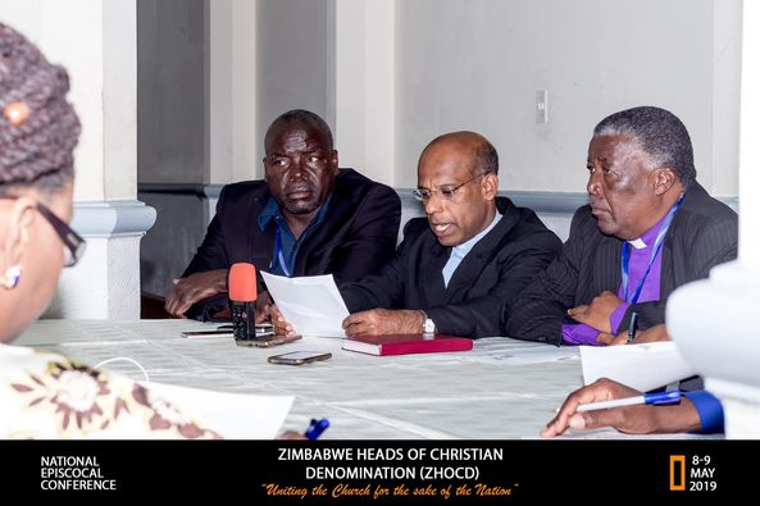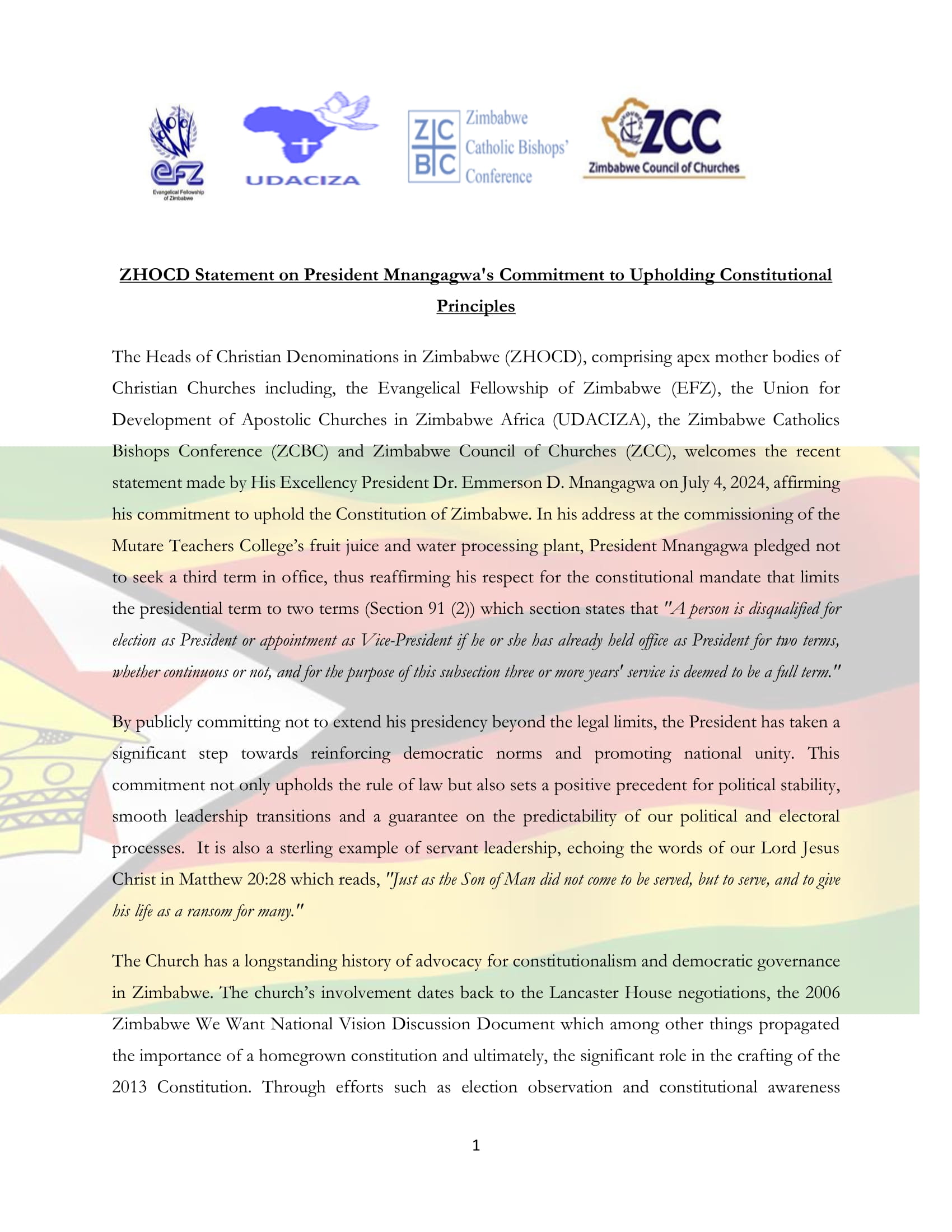 Zimbabwe’s mainline churches under their umbrella body the Zimbabwe Heads of Christian Denominations have welcomed the announcement by President Emmerson Mnangagwa that he will be stepping down at the end of his second term in 2028 saying that by publicly committing not to extend his presidency beyond the legal limits, the President has taken a significant step towards reinforcing democratic norms and promoting national unity.
Zimbabwe’s mainline churches under their umbrella body the Zimbabwe Heads of Christian Denominations have welcomed the announcement by President Emmerson Mnangagwa that he will be stepping down at the end of his second term in 2028 saying that by publicly committing not to extend his presidency beyond the legal limits, the President has taken a significant step towards reinforcing democratic norms and promoting national unity.
In a statement, ZHOCD which represents the Zimbabwe Council of Churches, the Zimbabwe Catholic Bishops Conference, the Evangelical Fellowship of Zimbabwe and the Union for Development of Apostolic Churches in Zimbabwe Africa, says this commitment not only upholds the rule of law but also sets a positive precedent for political stability, smooth leadership transitions and a guarantee on the predictability of our political and electoral processes.
“It is also a sterling example of servant leadership,” the ZHOCD says.
There have been increasing calls,especially from the ruling party, that Mnangagwa should stay on until 2030 which would mean amending the constitution as it stipulates that a president should serve only two five-year terms. But even the ruling party is said to be divided on this.
As if in response to calls for Mnangagwa to stay on, the ZHOCD calls upon all Zimbabweans to honour the President’s decision and to support him in the completion of his constitutional term.
The ZHOCD calls upon all Zimbabweans to embrace a spirit of peaceful and transparent leadership renewal.
“It is imperative that the process remains free from intimidation, violence, and manipulation to ensure national stability and the consolidation of our democracy,” it says. “The ZHOCD encourages every citizen to support efforts that promote good governance and foster an inclusive democracy.”
It says in his final term, Mnangagwa should prioritise the agenda on national unity and reconciliation, intensify the fight against corruption, continue to promote public sector accountability, industrialization; and reforms that enhance judiciary independence and justice.
Full statement:

Continued next page
(203 VIEWS)

